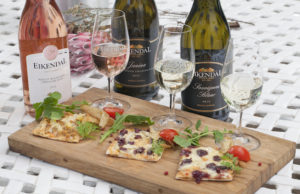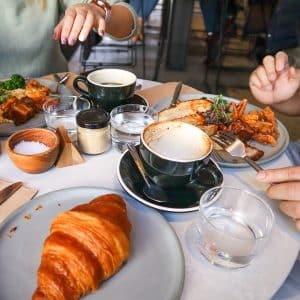Iming Lin has always nurtured the grassroots of public health, but in 2016 she took it a tad more literally: She began growing organic veggies for top chefs and curious homecooks.
Iming can remember exactly where she was walking when she decided that she wanted to pursue farming. She was working on a social enterprise project in Cape Town, far away from her native home of California. For her, work had always needed to be three things: socially and environmentally meaningful, as well as intellectually stimulating. Being a public health specialist ticked all those boxes, but she suddenly realised that farming could provide these aspects, too. An avid gardener, this idea had been taking root for a while.
Flash forward eight years and she has her own small-scale urban farm, Meuse Farm, in Hout Bay. It supplies the Western Cape’s fine-dining restaurants with seasonal organic veggies of unusual varieties, plus ever-changing veggie boxes to experimenting home cooks. And no, she doesn’t see another radical career change anytime soon…
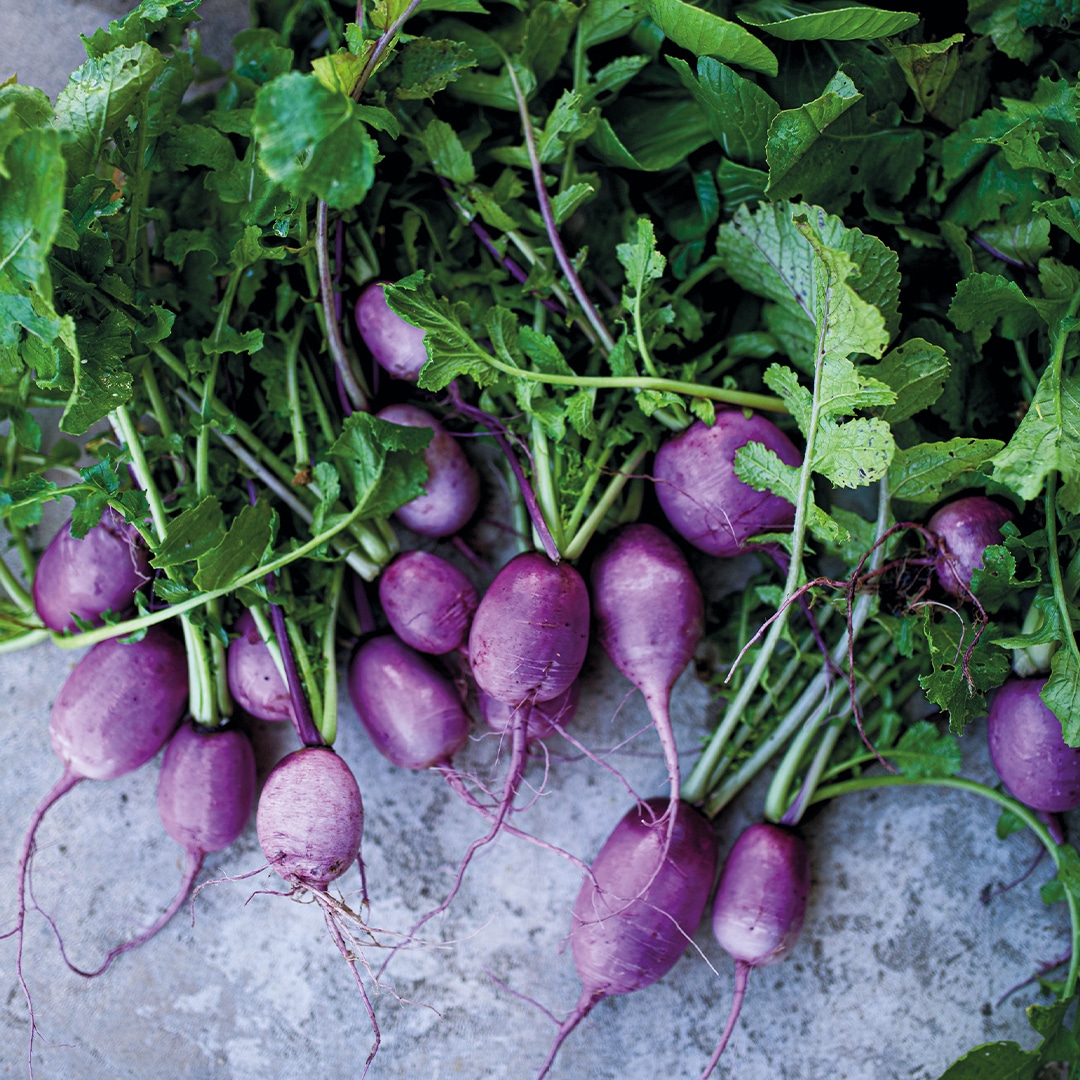
Who taught you to grow vegetables?
I’ve always been interested in growing veggies. From when I was a little kid, my parents allowed me to use the rototiller in our home garden in Silicon Valley, California. I’ve always been interested in food issues but farming never seemed like a vocation option. Once I realised that I wanted to learn about farming (it really is very different to gardening!), I started looking for volunteering and apprenticeship opportunities.
There weren’t many options in South Africa, so I volunteered at the Stone Barns Center for Food and Agriculture, an educational non-profit farm in the USA. My husband Jaco, and our three dogs, went with me and he did a fine furniture making apprenticeship. Two months turned into quite a lot longer, and we spent time on other farms to learn the business aspect.
It showed me that farming is not about copying methods, but understanding why people do certain things and then adapting it to your context. I had to learn about Hout Bay’s seasons and its seasonality, soil, local problem birds and the rhythm of the market.
And I learn so much from Instagram. I heard someone say that small-scale farms are the most wholesome little corner of social media, and it really is. There are so many little networks of really niche stuff that’s full of knowledge sharing. My current interest is soil biology, and that’s a whole rabbit hole to go down!
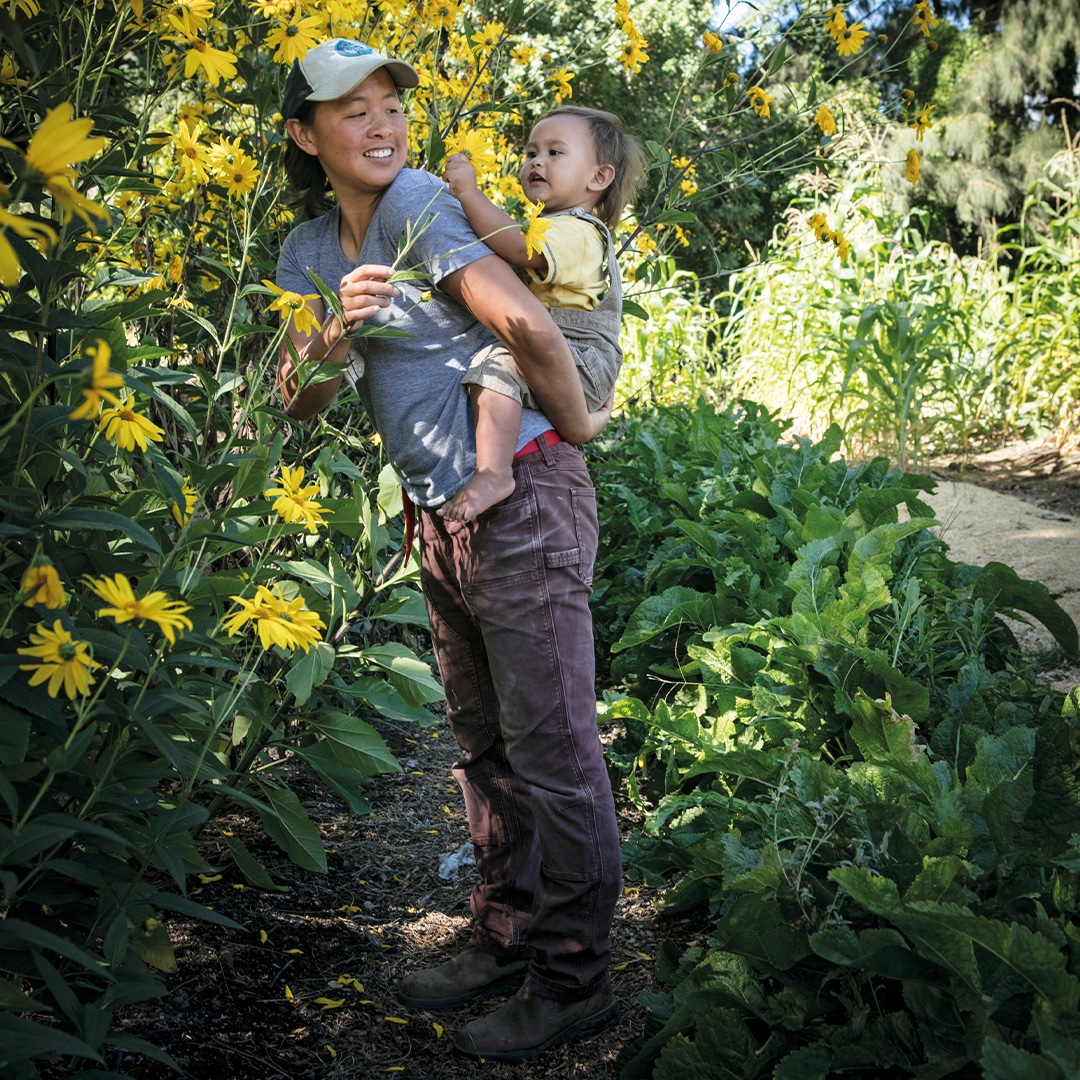
How has this farm developed over the years?
I first came to Hout Bay in 2002 on a tour with the University of Cape Town. I thought it was such a beautiful place, so I moved here in 2005. When we were looking for a plot, we wanted it to be close to home.
There are a lot of big plots with horses on them, but we couldn’t find anything available at the time. So Jaco went onto Google Maps and saw this plot. We did some digging and eventually, a year later, we managed to buy it when we came back to South Africa in 2017.
We started in March with Asian greens, flowers and herbs for fine-dining restaurants because they are more seasonal, pay well and are generally more predictable with bookings as compared to the more every day, less seasonal restaurants. Our first daughter, Willow, was born in late October 2017. It wasn’t great timing!
Three years later, we added the bottom section and expanded the rows to grow more varieties. We spent all of lockdown here, moving the cold room and office to make way for new beds. Meanwhile, I was pregnant with Scout. It was a beautiful time. Now I run the growing side of things with my small team while Jaco drives the tractor, builds things and helps with the business side. Last year, we grew 150 varieties of over 50 crops on just one hectare of land.
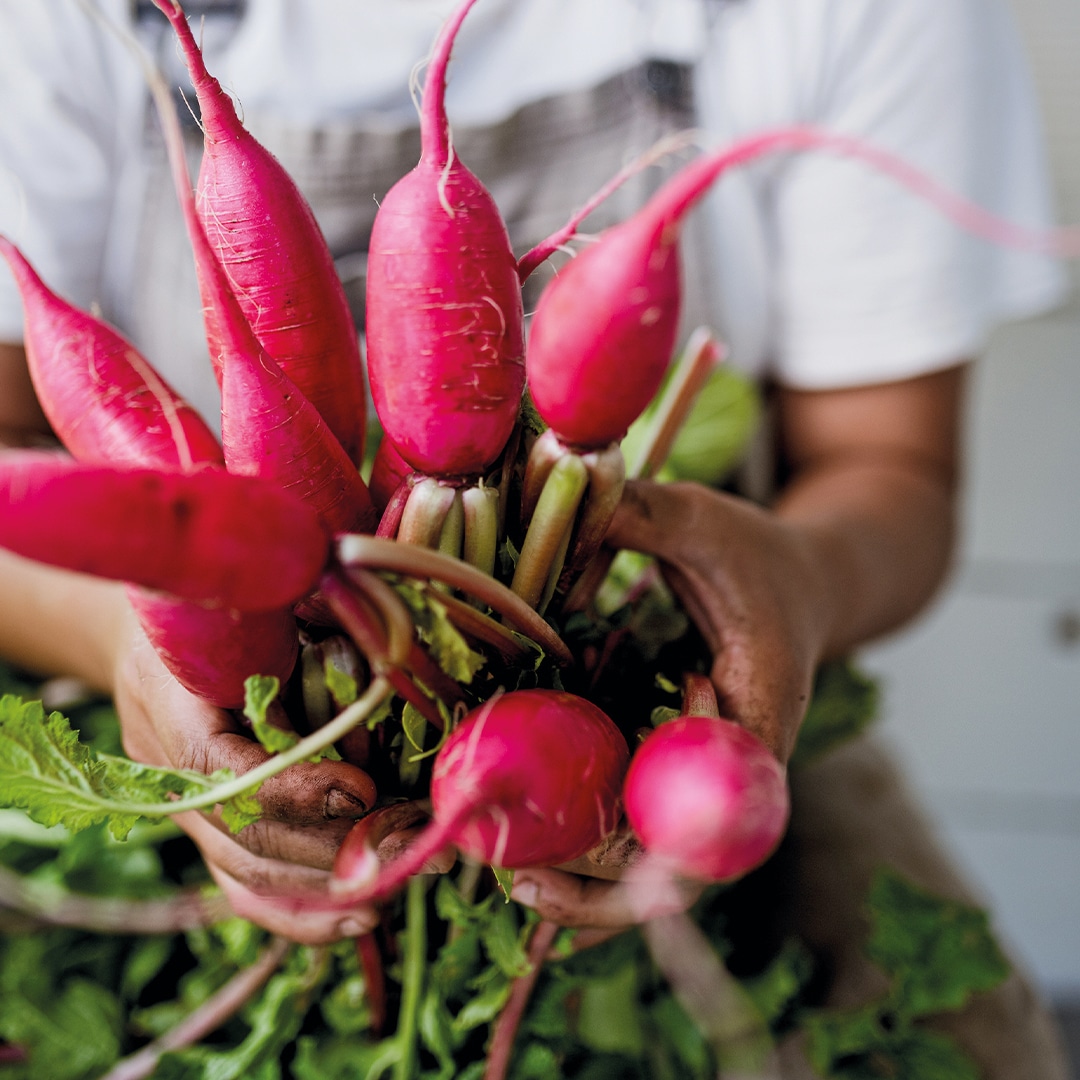
What is the thinking behind the veg boxes?
Before and during lockdown, I started Food Flow with a friend of mine to get quality produce to local community kitchens. We used R2 million in donations to buy food from small farmers. We started selling weekly Meuse veggie boxes to home cooks in October 2020, something we’d planned to do for a while.
There are some staples, what Jaco calls “normal people food”, and then some unusual things like fresh horseradish or daikon radishes. We don’t buy in anything, so these cooks know that everything really is organic and from this soil. These customers care about quality and positive change, like we do.
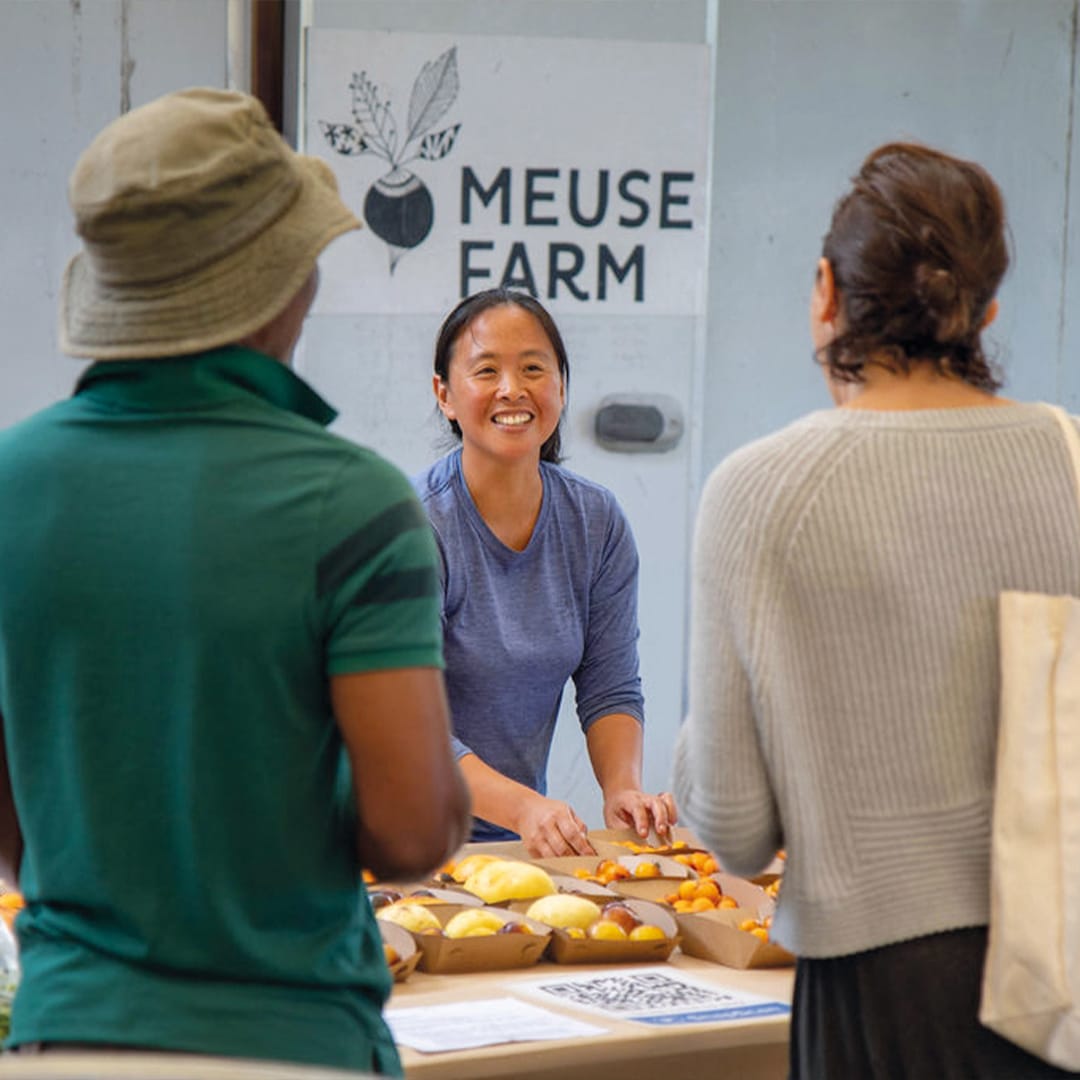
What’s it like to welcome the public onto the farm?
We always wanted the farm to be semi-public, but we were never sure how. I’m very protective of the private time on the farm.
We had a sign for the farm in season four, but we only hung it in season five! I am definitely an extrovert that’s becoming more introverted. So when there are people here, I want them to feel like they’re here with a purpose – to learn, for a meal or to help out.
I don’t ever want it to be just a place for Instagram selfies. We have had a few open days where people can come to the farm to attend a workshop using farm products, take a farm tour, buy veggies or eat a lunch made almost entirely from the farm veg.
But every event has been so much fun and it’s lovely meeting people who are excited about the farm, the food, a chef, making soap or arranging flowers. We’re trying to curate it so that it brings together people who care and are actually interested. And I think those interactions are really great.
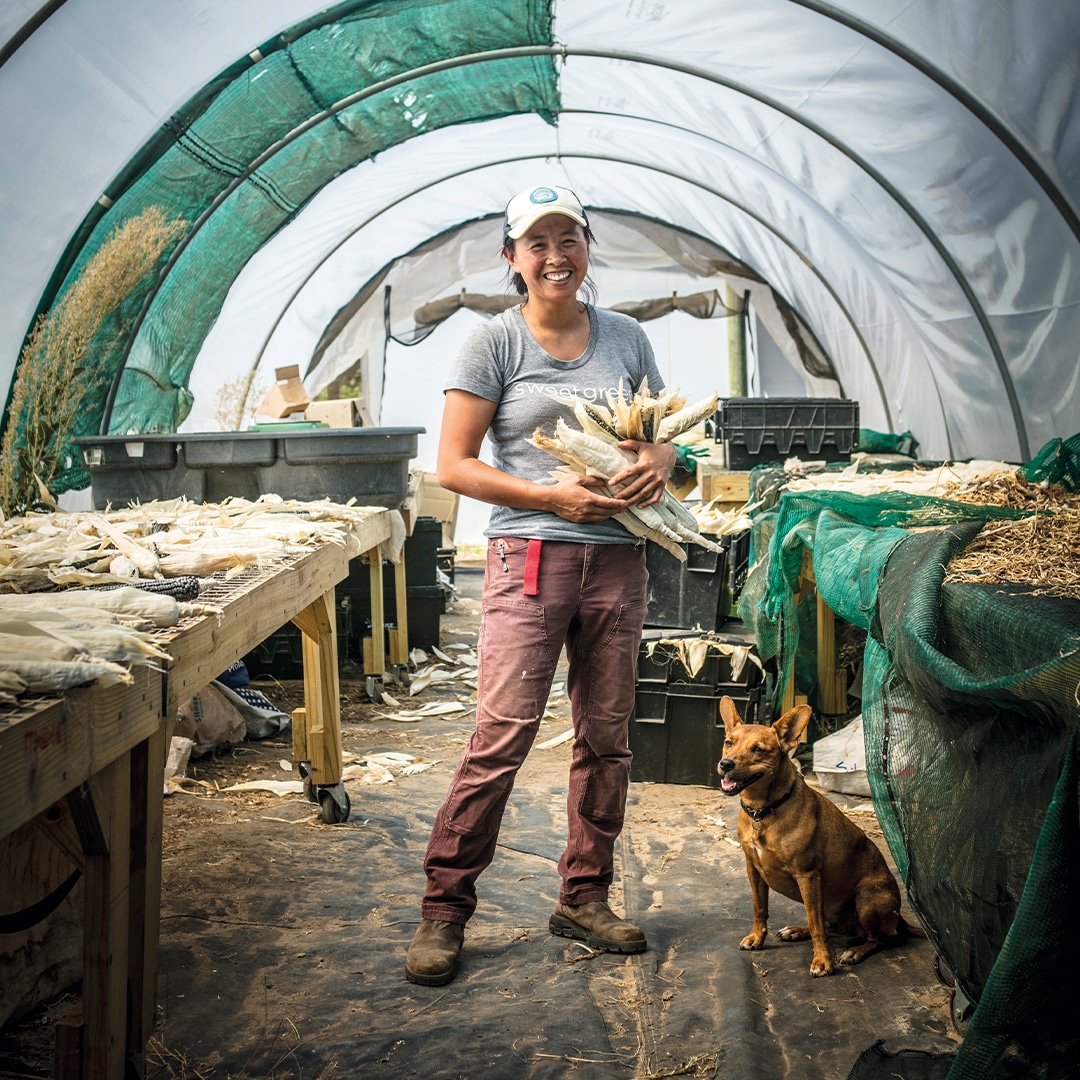
How has farming changed the way you cook?
I think having kids has changed the way we cook in a much bigger way! But in all seriousness, it has made us cook more seasonally and experiment with varieties we wouldn’t have access to otherwise. We look at what we have and then we find a recipe to match it, or we do a lot of substitutions to use it all up!
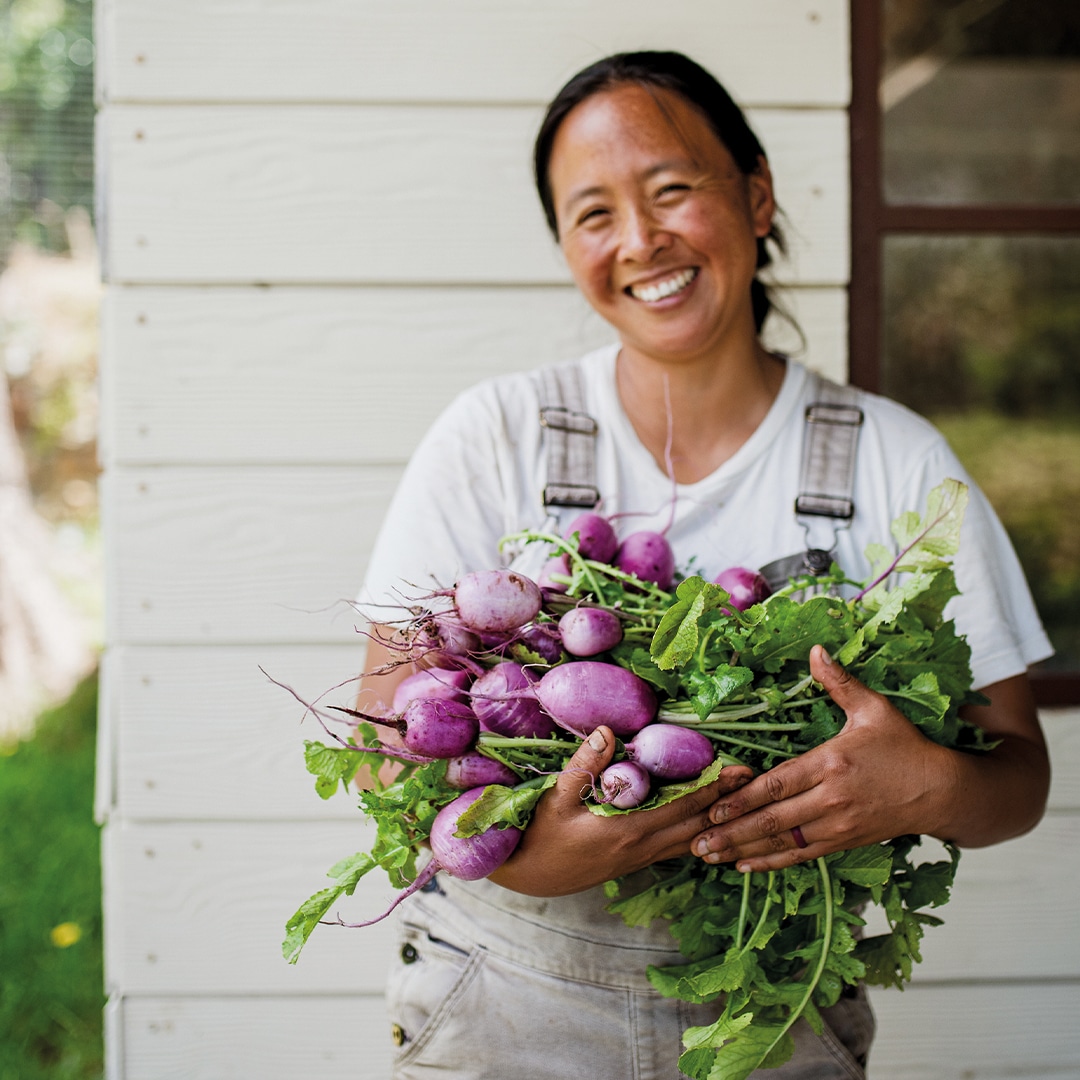
What are your hopes for the farm?
On the first day at Stone Barns, Jaco commented that it will be interesting to see if the reality of farming matches our idea of it. On the last day, I said to him that the reality is even better.
Coming back to SA, we wondered who our community would be because there aren’t a lot of small growers. But we discovered that our community is the chefs, the home cooks and the people who attend our events. We are excited to grow that community of people who care.
I think I will still be farming in the next five or ten years because there are so many wormholes to explore. My current interests are ethnobotany (the study of how particular people use a specific plant), soil science and landscaping to create habitats for wildlife on the farm. I also want to explore food as medicine, especially in relation to mental health, and how the farm can have a more intentional social impact. That’s the next project.
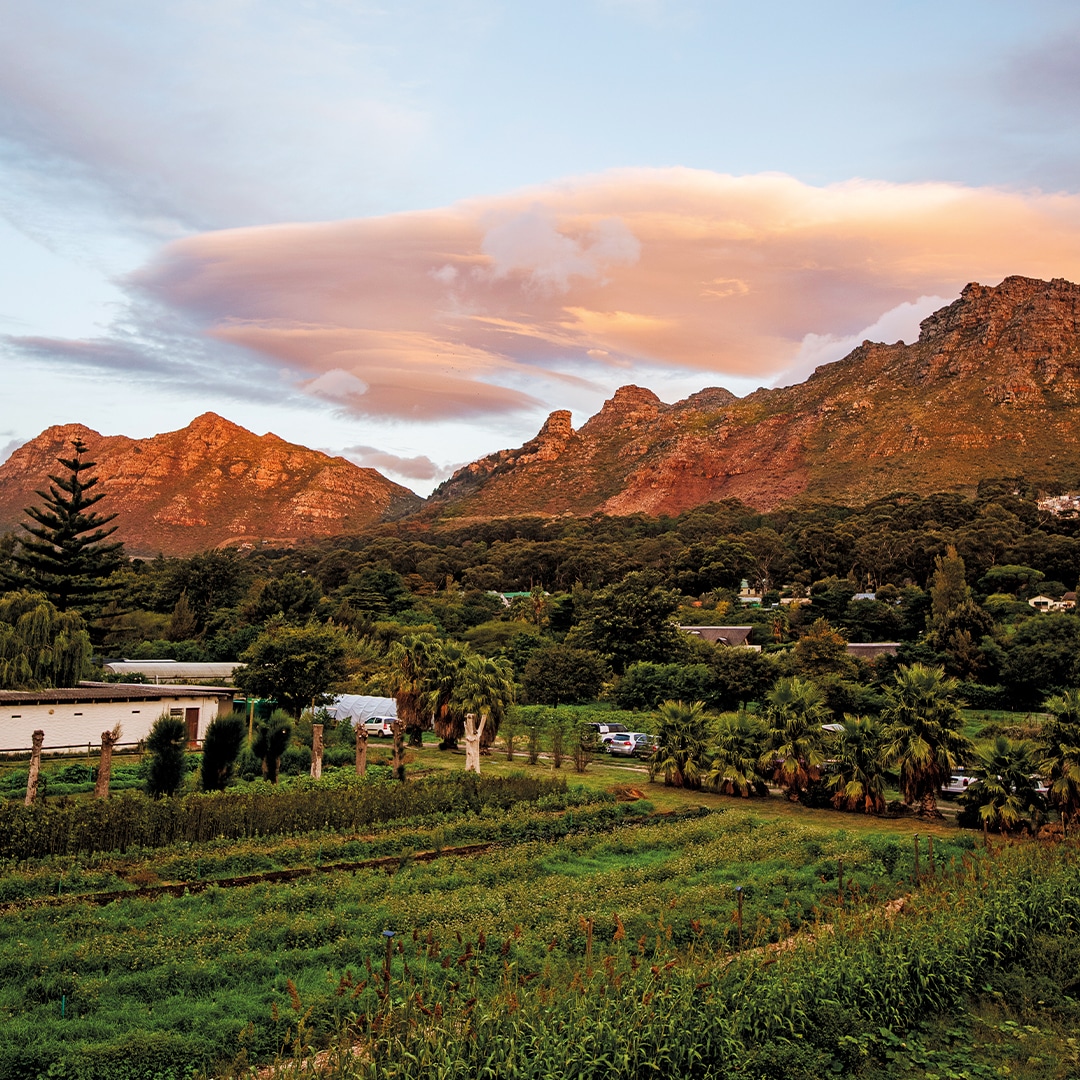
Quick-fire questions with Iming
What is your favourite veggie to eat?
I think it’s still the greens from childhood, like broccoli and peas.
What was your dream job as a kid?
A veterinarian, long-form journalist, photojournalist or doctor.
Which American food do you miss?
The chewy cookies! South Africa doesn’t do a good cookie or brownie – they’re very cake-like. But the best I’ve had here are the brownies at La Petite Moo and the salted spelt chocolate chip cookie at South Yeaster.
After dinner treat?
Good quality dark chocolate.
Words: Christi Nortier
Photography: Ashley Newell, Bruce Tuck, Claire Gunn
Also read: 5 dos and don’ts for starting your own veggie patch


